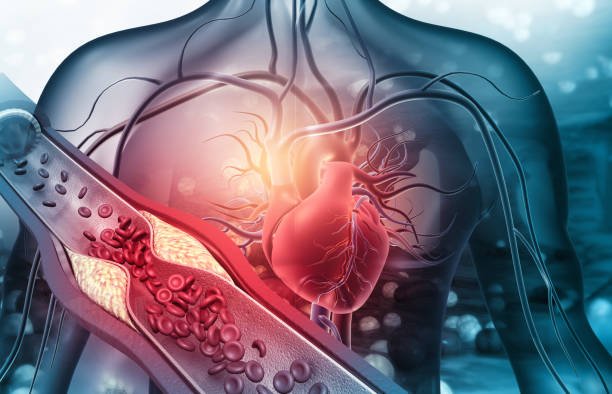
5 Myths About Heart Disease! Thin People Do Not Get Heart Disease? Is Heart Disease Necessarily Genetic?
Heart disease generally refers to all diseases that affect the heart, including cardiovascular disease, arrhythmia, myocardial infarction, etc. Among them, the most common heart disease is coronary heart disease. As the population with three high blood pressure (hypertension, hyperglycemia, and hyperlipidemia) increases, the incidence of heart disease has increased significantly.
Heart disease is not just a disease exclusive to certain groups. In addition to patients who are overweight, have a family history of heart disease, and sometimes have symptoms such as heart palpitations or chest pain, in fact, if you are not careful, you and I may have heart disease come to your doorstep! This article will debunk 5 common myths about heart disease.
Myth 1: Skinny people don’t get heart disease?
Statistically speaking, obese people are indeed more likely to suffer from diabetes, high blood pressure, hyperlipidemia, arteriosclerosis or coronary heart disease than thin people. Therefore, the risk of heart disease also increases.
Even though the probability is low, a small number of thin people will suffer from heart disease. Especially people who eat unhealthy because they think they won’t gain weight. Because I don’t eat fat, I rarely exercise, and I am even less wary of foods high in oil, salt, and fat such as fried foods, desserts, sugary drinks, and snacks. This causes the body’s cholesterol, fat, and blood sugar to be too high, making me look slim. , but they are a group at high risk of cardiovascular disease.
Myth 2: Only the elderly get heart disease?
Today’s fast-paced society, sophisticated diet, high work pressure, irregular work and rest lifestyles have reversed the past belief that only those over 50 years old should pay attention to heart disease. The age group suffering from heart disease has gradually been revised downwards, with people aged 35 and above. The middle-aged and middle-aged people have become the main risk group.
There are more and more patients with myocardial infarction under the age of 30. What these patients have in common is that they have high levels of obesity, high work pressure, abnormal work and rest, lack of exercise, or have a habit of smoking and drinking. It is obvious that heart disease is no longer a long-term problem. Exclusive.
It is recommended that middle-aged and middle-aged people should start to adjust their diet and living habits and maintain good work, rest and exercise habits. If you feel any discomfort in your breathing or chest such as wheezing or tightness, you should seek medical examination as soon as possible and have regular health check-ups.

Myth 3: Heart disease is often caused by genetics?
People with a family history of heart disease are indeed one of the high-risk groups for heart disease, but the probability is only higher than that of the average person, not absolute. In addition, if there is a genetic history of heart disease in the family, the acquired eating habits are high in sugar, oil or salt, and there is no usual exercise habit, then the chance of developing high blood pressure or even heart disease in the future will be significantly higher.
If a family has a genetic history of heart disease, it is recommended that you actively adjust your life and pay attention to a balanced diet to relatively reduce the chance of heart disease and avoid following the family history.
Myth 4: Are chest pain and shortness of breath a precursor to heart disease?
Heart disease does not necessarily manifest as chest pain. Dizziness, difficulty breathing, toothache, stomach pain or shoulder pain may also occur together. Chest pain may also be caused by esophagitis, gastroesophageal reflux, gastric ulcer or pneumothorax. It may be too careless to judge chest pain as heart disease alone. It is best to seek medical diagnosis and treatment as soon as possible.
In addition, labored breathing or feeling out of breath that is complicated by a heart attack are often considered to be precursors of heart disease, but they may also be caused by lung disease, respiratory disease, excessive obesity, etc. .
When chest pain and breathlessness occur, but it is difficult to determine whether it is a heart disease, it is still recommended to seek medical treatment as soon as possible and seek professional medical assistance for diagnosis and treatment.

Myth 5: Can’t exercise because of a bad heart?
Many people are easily tired and breathless due to high blood pressure or heart disease, so they simply do not exercise or reduce the amount of activity, but ignore the importance of proper exercise to improve heart health.
Exercise helps to promote metabolism, improve three-high disease, smooth blood flow and metabolism, and improve heart function. Therefore, moderate exercise is beneficial to the control of heart disease. However, patients with heart disease still need to be more careful when exercising than the average person. In particular, they should warm up before exercising, pay attention to changes in temperature differences, and avoid strenuous exercise. Exercises suitable for patients with heart disease include relatively gentle aerobic exercises such as jogging, cycling, swimming, Tai Chi and other aerobic exercises that focus on strengthening cardiopulmonary function. However, the key is to do it step by step and conduct exercise training under supervision. Avoid danger.
Because moderate activity helps maintain body and heart function, it is recommended that heart disease patients should not only perform warm-up and cool-down exercises for about 5 to 10 minutes before and after exercise, but also observe their heart condition before and after exercise and consult with a doctor. Provide relevant suggestions on the most suitable frequency and type of exercise for individuals.












